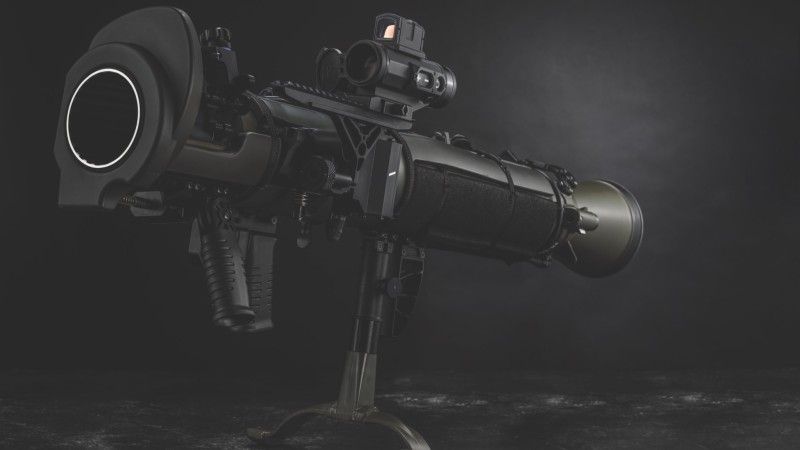Armed Forces
Polish Army Procures Thousands Carl Gustaf M4s

The Armament Agency has signed an agreement on the delivery of a couple thousand Carl-Gustaf M4 anti-tank weapons, along with several thousand projectiles for these systems.
The agreement was signed during Pal Jonson’s, head of the Swedish MoD, visit to Poland, in the presence of the Head of the Polish Ministry of Defence Władysław Kosiniak-Kamysz, and his Swedish counterpart. The brief release issued by the Polish Ministry of Defence suggests that „Carl-Gustaf M4 is the latest development variant of the Carl-Gustaf family. It is designed to neutralize all types of modern fighting vehicles, including heavy armour like main battle tanks. It allows the user to neutralize enemy infantry and fortifications, and also to illuminate the battlefield or create smoke screens”.
The Polish Army would procure multiple-use anti-tank grenade launchers/recoilless guns, tailored for using programmable munitions and modern sight systems. Considering the procurement scale, they would be destined to be used by the Land Forces, partially replacing the RPG-7 launchers, and the SPG-9 recoilless guns. One should also consider potential options for manufacturing Carl Gustaf munitions domestically, to meet the demand of the Armed Forces, also allocating most of the lifecycle management cost within the domestic industry. Let us recall that M2 and M3 Carl-Gustaf systems are currently being used by the Polish SOF Component.
The scale of the procurement bears the key relevance here. Several thousand grenade launchers (and a couple hundred thousand projectiles) would allow for a quite strong saturation of the existing and future elements of the Polish Armed Forces. The Polish Ministry of Defence confirmed that the procured package includes the FCD 558 sights that can work with programmable munitions, along with a broad catalogue of munitions, including AP, HE-Frag, AP-Frag, HE, Multi-Functional, Smoke, Illumination, Training, Inert, and Practice rounds.
Saab claims that the agreement has a value of almost SEK 12.9 bn. The deliveries are planned to happen between 2024 and 2027.

The agreement is yet another success for Saab when it comes to the sales of Carl-Gustaf M4 guns recently. Lately, Saab also signed deals within that scope with Estonia, the USA, Japan, and Australia. It was also recently announced that a manufacturing facility focused on those weapons was established in India - delivering Carl Gustaf systems for the local military. The War in Ukraine has also been an important factor shaping the increased demand. The system was used in Ukraine to neutralize the T-90M main battle tank for the first time (officially). It is the latest Russian series-manufactured main battle tank. Some information suggests that the tank was ultimately destroyed by another T-90M, to prevent it from being captured by the Ukrainians.
Carl-Gustaf M4 is the latest variant of the 84 mm recoilless weapon, developed and manufactured by Saab Dynamics AB since 1948. Compared to the legacy M3 variant, the new launcher is 3.4 kg lighter (weighing just 6.7 kg), and a bit shorter (95 cm). The weight reduction has been possible thanks to the use of lighter materials, and shorter length enhances ergonomics, especially in urban warfare.
The system also features a new holographic sight, safety allowing the user to safely transport a loaded weapon, Picatinny rails, front grip, shot counter, and programmable munitions capability. Ever since the weapon was premiered in its latest variant back in 2014, Saab has signed procurement contracts with several different nations.
Estonia is one of the most significant users, who procured 700 systems as such. The weapon has an effective range of 500-700 meters (shaped-charge anti-tank munitions, including tandem-warheads) up to 1.2-1.5 kilometres (HE rounds, or programmable munitions). Noteworthy, the Carl-Gustaf M4 munitions are being continuously developed, and the munitions include HE-MP, training, inert, or smoke projectiles as well. Some of the projectiles used in this system can also be launched in closed enclosures.

Photo. Magyar Honvédség
Written with Adam Świerkowski
